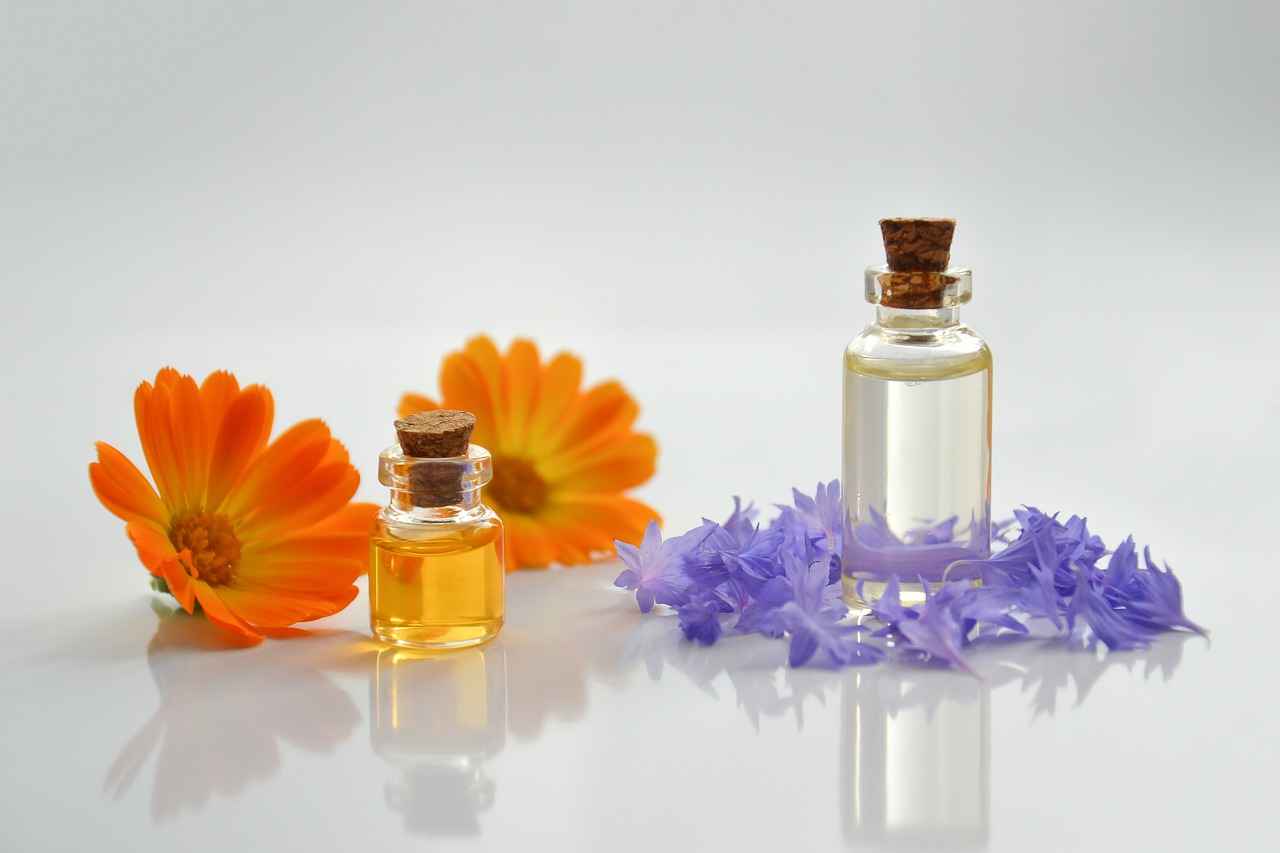This article delves into the remarkable skin benefits of Vitamin E oil, highlighting its antioxidant properties, moisturizing effects, and its crucial role in skin healing. These attributes make it an indispensable component of any effective skincare routine.
What is Vitamin E Oil?
Vitamin E oil is a fat-soluble antioxidant that is naturally found in various foods and skincare products. It is celebrated for its ability to protect and nourish the skin, promoting overall health and vitality.
Benefits of Vitamin E Oil for Skin
Vitamin E oil provides numerous skin benefits, including:
- Hydration: Locks in moisture and prevents dryness.
- Anti-Aging: Reduces the appearance of fine lines and wrinkles.
- Protection: Shields the skin from environmental stressors.
Hydration and Moisturization
As an effective moisturizer, Vitamin E oil helps maintain skin hydration, making it particularly beneficial for those with dry skin. It creates a barrier that locks in moisture, resulting in a healthy and supple complexion.
How to Use Vitamin E Oil for Hydration
To incorporate Vitamin E oil into your skincare routine, consider:
- Direct application on the skin.
- Mixing it with your favorite lotions.
- Using it in DIY face masks for enhanced hydration.
Best Practices for Application
For optimal results, apply Vitamin E oil after cleansing and toning your skin. Employ gentle massaging techniques to enhance absorption and maximize its moisturizing effects.
Anti-Aging Properties of Vitamin E Oil
The powerful antioxidant properties of Vitamin E oil combat free radicals, which are responsible for premature aging. Regular use can help diminish fine lines and promote a youthful glow.
Vitamin E Oil for Scarring and Healing
Vitamin E oil is renowned for its ability to reduce the appearance of scars and promote skin healing. It is particularly effective for improving skin texture and tone.
How Vitamin E Oil Aids in Healing
The regenerative properties of Vitamin E oil enhance skin repair, making it beneficial for treating minor cuts, burns, and other skin irritations.
Using Vitamin E Oil for Scars
Consistent application of Vitamin E oil on scars can help soften and lighten them over time, contributing to a more even skin tone and texture.
Potential Side Effects of Vitamin E Oil
While generally safe, some individuals may experience allergic reactions or skin irritation. It is essential to understand these risks for safe usage.
Who Should Avoid Vitamin E Oil?
People with sensitive skin or allergies to Vitamin E should exercise caution, as they may experience adverse reactions to products containing this oil.
Signs of Allergic Reaction
Common symptoms of an allergic reaction to Vitamin E oil include redness, itching, and swelling. If these symptoms occur, it is advisable to discontinue use and consult a dermatologist.
Conclusion: Embracing Vitamin E Oil in Your Skincare Routine
Incorporating Vitamin E oil into your skincare regimen can yield numerous benefits, from hydration to healing, making it a versatile and effective choice for achieving healthy, radiant skin.

What is Vitamin E Oil?
Vitamin E oil is a remarkable fat-soluble antioxidant that plays a vital role in maintaining skin health. Found in a variety of foods such as nuts, seeds, and green leafy vegetables, as well as in many skincare products, this oil is celebrated for its protective and nourishing properties. It not only promotes overall health but also serves as a key ingredient in enhancing the skin’s appearance and resilience.
As a powerful antioxidant, Vitamin E oil combats oxidative stress caused by environmental factors like pollution and UV radiation. This property helps in protecting the skin from damage, making it a crucial element in skincare routines aimed at preventing premature aging and maintaining a youthful glow.
Moreover, Vitamin E oil is known for its moisturizing effects. It aids in locking in moisture, which is particularly beneficial for individuals with dry or dehydrated skin. By creating a protective barrier, it helps to prevent moisture loss, resulting in a healthy and supple complexion.
In addition to hydration, Vitamin E oil plays a significant role in skin healing. Its regenerative properties can enhance the skin’s natural repair processes, making it effective for treating minor cuts, burns, and irritations. Regular application can also aid in diminishing the appearance of scars, leading to improved skin texture and tone over time.
Incorporating Vitamin E oil into your skincare routine can be a game-changer. Whether applied directly to the skin, mixed with lotions, or included in DIY face masks, it offers versatile benefits that cater to various skin needs. However, it is essential to be aware of potential side effects, as some individuals may experience allergic reactions or irritation.
In conclusion, Vitamin E oil is not just a skincare trend; it is a powerful ally in the quest for healthy, radiant skin. Its multitude of benefits, from hydration to healing, makes it an indispensable addition to any skincare regimen.

Benefits of Vitamin E Oil for Skin
Vitamin E oil is a remarkable ingredient known for its extensive benefits in skincare. This powerful antioxidant not only nourishes the skin but also provides a protective barrier against environmental damage. Below, we explore the various advantages of incorporating Vitamin E oil into your daily skincare routine.
- Hydration and Moisturization: Vitamin E oil is renowned for its ability to deeply hydrate the skin. It acts as an effective moisturizer, helping to lock in moisture and prevent dryness. This is particularly beneficial for individuals with dry skin, as it promotes a soft and supple complexion.
- Anti-Aging Effects: The antioxidant properties of Vitamin E oil help combat free radicals that contribute to skin aging. By reducing the appearance of fine lines and wrinkles, it promotes a youthful, radiant glow.
- Protection Against Environmental Stressors: Vitamin E oil forms a protective barrier on the skin, shielding it from harmful UV rays and pollution. This protective quality makes it an essential ingredient for maintaining healthy skin.
- Healing and Repair: Vitamin E oil is celebrated for its ability to aid in skin healing. It can diminish the appearance of scars and promote the regeneration of skin cells, making it an excellent choice for those looking to improve skin texture.
How to Incorporate Vitamin E Oil into Your Routine:
1. Apply directly to clean skin for intense hydration.2. Mix a few drops with your daily moisturizer for added benefits.3. Use in DIY face masks for enhanced nourishment.
In conclusion, the benefits of Vitamin E oil for skin are vast and varied. From hydration and anti-aging effects to healing properties, it is a versatile ingredient that can significantly enhance your skincare regimen. Consider adding Vitamin E oil to your routine for healthier, more radiant skin.
Hydration and Moisturization
are essential components of any effective skincare routine, particularly for those with dry or sensitive skin. One of the most celebrated natural ingredients for achieving optimal hydration is Vitamin E oil. This powerful oil is not only a phenomenal moisturizer but also plays a crucial role in maintaining skin health and vitality.
Vitamin E oil is renowned for its ability to lock in moisture, which is particularly beneficial for individuals struggling with dryness. By creating a protective barrier on the skin, it helps to prevent moisture loss throughout the day, resulting in a healthy and supple complexion. This makes it an ideal choice for those living in harsh climates or experiencing seasonal skin changes.
Moreover, Vitamin E oil is packed with antioxidants that combat free radicals, which can lead to premature aging. By using this oil regularly, you can not only hydrate your skin but also protect it from environmental stressors, ultimately promoting a more youthful appearance.
For those looking to incorporate Vitamin E oil into their skincare routine, there are several effective methods:
- Direct Application: Apply a few drops of Vitamin E oil directly onto clean skin, gently massaging it in until fully absorbed.
- Mix with Lotions: Combine Vitamin E oil with your favorite moisturizer to enhance its hydrating effects.
- DIY Face Masks: Create a nourishing face mask by mixing Vitamin E oil with natural ingredients like honey or avocado.
To maximize the benefits of Vitamin E oil, it is advisable to apply it after cleansing and toning your skin. This ensures that your skin is prepared to absorb the oil effectively. Additionally, using gentle massage techniques can further enhance the oil’s moisturizing properties, allowing it to penetrate deeply and provide lasting hydration.
In conclusion, Vitamin E oil is a versatile and powerful addition to any skincare regimen. Its ability to hydrate and protect the skin makes it an invaluable tool for achieving a radiant and healthy complexion.
How to Use Vitamin E Oil for Hydration
Incorporating Vitamin E oil into your skincare routine can significantly enhance skin hydration and overall health. This versatile oil can be utilized in various ways to ensure your skin receives the moisture it craves.
- Direct Application: Applying Vitamin E oil directly to the skin is one of the simplest methods. After cleansing your face, take a few drops of the oil and gently massage it into your skin. This method allows for deep penetration, providing immediate hydration.
- Mixing with Lotions: For those who prefer a lighter texture, mixing Vitamin E oil with your favorite lotion can be an excellent option. This combination not only boosts the moisturizing properties of the lotion but also enhances its effectiveness, making it ideal for daily use.
- DIY Face Masks: Vitamin E oil can be a key ingredient in homemade face masks. Combine it with ingredients like honey, yogurt, or avocado for a nourishing mask that deeply hydrates and revitalizes your skin. Apply the mask for 15-20 minutes before rinsing for optimal results.
For best results, it’s advisable to use Vitamin E oil at night, allowing it to work its magic while you sleep. Additionally, always perform a patch test before full application to ensure your skin does not react adversely.
In summary, whether you choose to apply it directly, mix it with lotions, or include it in DIY masks, Vitamin E oil is a powerful ally in your quest for hydrated, healthy skin. Embrace its benefits and watch your skin transform!
Best Practices for Application
To fully harness the benefits of Vitamin E oil in your skincare routine, it is essential to follow effective application techniques. Here are some best practices to consider:
- Cleanse Your Skin: Always start with a clean canvas. Use a gentle cleanser to remove dirt, oil, and makeup from your face.
- Tone Your Skin: After cleansing, apply a toner to balance your skin’s pH levels. This step prepares your skin to absorb the Vitamin E oil more effectively.
- Apply Vitamin E Oil: Once your skin is clean and toned, take a few drops of Vitamin E oil and warm it between your palms. This helps activate its properties.
- Gentle Massage: Use your fingertips to gently massage the oil into your skin. Focus on areas that require extra hydration or show signs of aging. The massage not only enhances absorption but also improves blood circulation.
- Use at Night: For optimal results, apply Vitamin E oil in the evening before bed. This allows the oil to work overnight, providing deep hydration and nourishment while you sleep.
- Combine with Other Products: Consider mixing Vitamin E oil with your favorite moisturizer or serum. This can amplify its moisturizing effects and provide additional benefits.
By following these best practices, you can maximize the effectiveness of Vitamin E oil and enjoy its numerous skin benefits, including enhanced hydration, improved texture, and a radiant glow.
Incorporating Vitamin E oil into your skincare routine does not have to be complicated. With these simple steps, you can achieve healthy, glowing skin.
Anti-Aging Properties of Vitamin E Oil
Vitamin E oil is widely celebrated for its anti-aging benefits, making it a staple in many skincare routines. This powerful antioxidant plays a crucial role in protecting the skin from oxidative stress caused by free radicals, which can lead to premature aging. As we age, our skin naturally loses its elasticity and moisture, resulting in the appearance of fine lines and wrinkles. Incorporating Vitamin E oil into your daily regimen can help combat these signs of aging, promoting a more youthful and radiant complexion.
One of the primary ways Vitamin E oil achieves its anti-aging effects is through its ability to neutralize free radicals. Free radicals are unstable molecules that can damage skin cells, leading to oxidative stress and accelerating the aging process. By applying Vitamin E oil, you can help shield your skin from environmental aggressors such as pollution and UV rays, which are known to contribute to skin aging.
Moreover, Vitamin E oil is not only an antioxidant but also a moisturizer. It helps to lock in moisture, keeping the skin hydrated and plump. Well-hydrated skin appears smoother and more elastic, reducing the visibility of fine lines. Regular application can also enhance the skin’s natural barrier, preventing moisture loss and promoting a healthy glow.
To maximize the benefits of Vitamin E oil, consider using it in combination with other skincare ingredients. For instance, mixing it with a facial serum or applying it after your moisturizer can enhance absorption and effectiveness. Additionally, using Vitamin E oil in DIY face masks can provide a boost of hydration and nourishment.
In conclusion, the anti-aging properties of Vitamin E oil make it an essential component of any skincare routine. By combating free radicals, providing moisture, and enhancing skin texture, Vitamin E oil can significantly contribute to a youthful appearance. Embrace this natural powerhouse in your daily regimen for healthier, more vibrant skin.

Vitamin E Oil for Scarring and Healing
Vitamin E oil is widely recognized for its remarkable healing properties and its ability to significantly reduce the appearance of scars. This oil is not just a cosmetic treatment; it is a powerful ally in skin recovery and rejuvenation. Understanding how Vitamin E oil works can help you harness its benefits for improved skin texture and tone.
What Makes Vitamin E Oil Effective for Scarring?
Vitamin E oil is a potent antioxidant that fights free radicals, which can damage skin cells and hinder the healing process. By neutralizing these harmful molecules, Vitamin E promotes a healthier skin environment, allowing for better repair of damaged tissues.
How to Use Vitamin E Oil for Scars
- Direct Application: Apply a few drops of Vitamin E oil directly onto the scarred area. Gently massage it into the skin to enhance absorption.
- Mixing with Other Products: Combine Vitamin E oil with your regular moisturizer or lotion to boost its healing properties.
- DIY Treatments: Create homemade face masks that incorporate Vitamin E oil for added benefits.
Frequency of Application
For optimal results, apply Vitamin E oil at least once or twice daily. Consistency is key in seeing improvements in scar appearance over time.
Potential Results and Timeframe
While results can vary based on skin type and the nature of the scars, many users report noticeable improvements within a few weeks to months of regular use. Scars may appear lighter and less pronounced, leading to a more even skin tone.
Conclusion
Incorporating Vitamin E oil into your skincare routine can be a game-changer for scar healing. Its natural properties not only support skin recovery but also promote overall skin health. Whether you are dealing with old scars or new ones, Vitamin E oil is a valuable addition to your skincare arsenal.
How Vitamin E Oil Aids in Healing
Vitamin E oil is widely recognized for its remarkable healing properties, making it a popular choice for those seeking to improve their skin’s health. This oil is a potent antioxidant that plays a crucial role in skin repair and regeneration. Its ability to enhance skin healing is particularly beneficial for individuals dealing with minor cuts, burns, and various skin irritations.
One of the primary ways Vitamin E oil aids in healing is through its regenerative properties. When applied to the skin, it works to stimulate cell regeneration, which is essential for the healing process. This means that it can help to speed up the recovery time of wounds, allowing the skin to return to its normal state more quickly. Additionally, Vitamin E oil helps to maintain the skin’s moisture barrier, which is vital for protecting the skin and promoting healing.
Moreover, Vitamin E oil has been shown to reduce inflammation, which can be beneficial for conditions such as eczema and psoriasis. By calming the skin and reducing redness, this oil can help alleviate discomfort and promote a healthier skin appearance. Its anti-inflammatory properties also make it effective in treating sunburns and other types of skin irritation.
Regular use of Vitamin E oil can also assist in minimizing the appearance of scars. When applied consistently to healing wounds, it can help to soften and lighten scars over time, leading to a more even skin tone and texture. This makes Vitamin E oil a valuable addition to any skincare regimen focused on healing and repair.
In conclusion, the healing benefits of Vitamin E oil are extensive. Its regenerative, anti-inflammatory, and moisturizing properties make it an essential ingredient for anyone looking to improve their skin’s health and appearance. Whether used for minor cuts, burns, or as a preventative measure, Vitamin E oil can significantly enhance skin repair and promote overall skin wellness.
Using Vitamin E Oil for Scars
Vitamin E oil is widely recognized for its remarkable ability to improve the appearance of scars, making it a favored choice among skincare enthusiasts. The oil’s antioxidant properties play a crucial role in skin repair, promoting healing and reducing the visibility of scars over time.
When consistently applied, Vitamin E oil can significantly soften and lighten scars, leading to a more even skin tone and texture. This process occurs as the oil penetrates deeply into the skin, enhancing blood circulation and facilitating the regeneration of skin cells. As a result, the healing process is accelerated, making scars less noticeable.
To maximize the benefits of Vitamin E oil on scars, consider the following application methods:
- Direct Application: Apply a few drops of Vitamin E oil directly onto the scarred area. Gently massage it into the skin using circular motions to improve absorption.
- Mix with Moisturizers: Combine Vitamin E oil with your regular moisturizer or lotion to enhance its hydrating properties while targeting scars.
- DIY Treatments: Create homemade face masks or scrubs that incorporate Vitamin E oil, allowing for a more comprehensive treatment approach.
For optimal results, it is recommended to apply Vitamin E oil twice daily, preferably after cleansing the skin. This routine not only aids in scar reduction but also provides essential moisture to the surrounding skin, enhancing overall texture.
While Vitamin E oil is generally safe for most skin types, it is important to conduct a patch test before widespread use, especially for individuals with sensitive skin. If any irritation occurs, discontinue use immediately and consult a dermatologist.
In conclusion, incorporating Vitamin E oil into your skincare regimen can be a transformative step in scar management. With consistent use and proper application techniques, you can achieve a smoother, more even complexion over time.

Potential Side Effects of Vitamin E Oil
While Vitamin E oil is widely regarded as safe for most individuals, it is essential to recognize that some people may experience allergic reactions or skin irritation. Understanding these potential side effects is crucial for ensuring safe and effective use of this popular skincare ingredient.
Who Should Exercise Caution?
- Individuals with sensitive skin may find that their skin reacts negatively to Vitamin E oil.
- Those who have a known allergy to Vitamin E should avoid using products containing this oil altogether.
- People with pre-existing skin conditions should consult a dermatologist before incorporating Vitamin E oil into their routine.
Common Signs of Allergic Reactions
If you are using Vitamin E oil and notice any of the following symptoms, it is advisable to discontinue use immediately:
- Redness of the skin
- Itching or irritation
- Swelling or inflammation
Important Considerations for Safe Use
To minimize the risk of adverse reactions, consider the following best practices:
- Always perform a patch test before using Vitamin E oil on larger areas of the skin.
- Start with a low concentration of Vitamin E oil to gauge your skin’s response.
- Consult with a healthcare professional or dermatologist if you have concerns regarding your skin type or the use of Vitamin E oil.
In conclusion, while Vitamin E oil offers numerous benefits for skin health, awareness of potential side effects is essential for safe and effective use. By taking precautions and understanding your skin’s needs, you can enjoy the advantages of this powerful antioxidant without unnecessary risks.
Who Should Avoid Vitamin E Oil?
While Vitamin E oil is celebrated for its myriad skin benefits, it is essential to recognize that not everyone can safely incorporate it into their skincare routine. Individuals with sensitive skin or those who have a known allergy to Vitamin E should exercise caution when considering its use.
Those with sensitive skin often experience heightened reactions to various substances, including natural oils. The application of Vitamin E oil may lead to adverse effects such as:
- Redness: A common sign indicating irritation or an allergic reaction.
- Itching: A sensation that can lead to discomfort and further skin issues if scratched.
- Swelling: Inflammation can occur, indicating that the skin is reacting negatively to the oil.
For individuals with allergies, even small amounts of Vitamin E oil can trigger significant reactions. Symptoms may vary from mild irritation to more severe responses, necessitating immediate discontinuation of use. It is always advisable for those with known sensitivities to conduct a patch test before applying any new product extensively. This involves applying a small amount of the oil to a discreet area of skin and monitoring for any adverse reactions over 24 hours.
Furthermore, if you experience any of the aforementioned symptoms after using Vitamin E oil, it is crucial to consult a dermatologist or healthcare professional. They can provide tailored advice and recommend suitable alternatives that would be safer for your skin type.
In summary, while Vitamin E oil can be a beneficial addition to many skincare routines, individuals with sensitive skin or allergies should approach its use with caution and seek professional guidance when necessary.
Signs of Allergic Reaction
While Vitamin E oil is widely celebrated for its numerous skin benefits, it is essential to recognize that some individuals may experience adverse reactions. Understanding the signs of an allergic reaction is crucial for ensuring safe use of this popular skincare ingredient.
- Redness: One of the most common signs of an allergic reaction is redness in the area where the oil has been applied. This can indicate that the skin is reacting negatively to the substance.
- Itching: If you experience persistent itching after applying Vitamin E oil, it may be a sign that your skin is sensitive or allergic to the product.
- Swelling: In some cases, swelling may occur, indicating inflammation and a potential allergic response.
- Rash: The development of a rash or hives is another indicator of an allergic reaction, and it is advisable to discontinue use immediately.
- Burning Sensation: A burning or stinging sensation upon application can also signify an allergic reaction.
If you notice any of these symptoms after using Vitamin E oil, it is important to stop using the product and consult a dermatologist for further evaluation. They can help determine whether the reaction is due to Vitamin E oil or other factors and recommend suitable alternatives for your skincare needs.
In conclusion, while Vitamin E oil can provide excellent benefits for the skin, being aware of the potential for allergic reactions is essential. By recognizing the signs and taking appropriate action, you can ensure a safe and effective skincare routine.

Conclusion: Embracing Vitamin E Oil in Your Skincare Routine
Incorporating Vitamin E oil into your skincare regimen can provide a myriad of benefits, making it an essential component for achieving and maintaining healthy skin. This powerful oil, known for its antioxidant properties, plays a crucial role in protecting the skin from damage caused by free radicals, which are often a result of environmental stressors such as pollution and UV radiation.
One of the most significant advantages of Vitamin E oil is its ability to hydrate and moisturize the skin. Its fat-soluble nature allows it to penetrate deeply, locking in moisture and preventing dryness. This makes it particularly beneficial for individuals with dry or flaky skin, as it helps to restore a healthy, supple complexion.
Additionally, Vitamin E oil is renowned for its healing properties. It aids in the repair of damaged skin, making it an excellent choice for those dealing with scars, burns, or other skin irritations. Regular application can result in improved skin texture and tone, as it works to diminish the appearance of scars over time.
However, it is important to note that while Vitamin E oil is generally safe for most skin types, some individuals may experience allergic reactions or skin irritation. It is advisable to conduct a patch test before full application, especially for those with sensitive skin.
To maximize the benefits of Vitamin E oil, consider incorporating it into your skincare routine through various methods, such as mixing it with your favorite moisturizer, using it in DIY face masks, or applying it directly to the skin after cleansing. By doing so, you can harness its full potential for hydration, healing, and protection.
In conclusion, Vitamin E oil is not just a trendy ingredient; it is a versatile and effective choice for enhancing your skincare routine. With its numerous benefits, it can help you achieve the radiant, healthy skin you desire.







